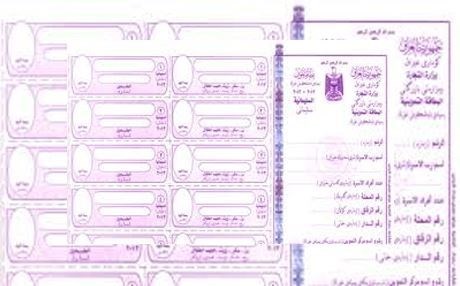ERBIL, Kurdistan Region — Iraq’s Ministry of Trade has put Kurdish writing back on ration cards for the province of Sulaimani, and is said to do the same for Erbil and Duhok provinces.
“The accounting department of ration card office has added Kurdish writing on ration cards for Sulaimani province. This came after a secondary committee completed the auditing process. Kurdish writing will be added to [ration cards] of Erbil and Duhok provinces,” the directorate general of planning at the Iraqi ministry of trade said in a statement on January 31, 2018.
Kurdish writing had already been put on ration cards, but it was removed in December. This led to objections by the Kurdistan Region and was seen as another punitive measure imposed by Baghdad after the independence referendum.
Article 4 of the Iraqi constitution states the Arabic and Kurdish languages are the two official languages of Iraq. Within that scope, the application of the provisions of this article shall be defined by law and shall include the “use of both languages in any matter enjoined by the principle of equality such as bank notes, passports, and stamps.”
The Kurdistan Regional Government’s trade ministry refused to accept new ration cards issued by Iraq, arguing that removing Kurdish writing on them was deliberate and a politically motivated.
“The ministry didn’t do this on purpose. Many discussions were held before and after rations cards were issued. During this time, the regional trade ministry was quiet, making no effort to discuss the addition of Kurdish writing [on ration cards]. There was also much talk on the data,” the Iraqi trade ministry said.
Ration cards came to use in Iraq in 1995 when the previous Baathist regime was heavily sanctioned and humanitarian food supplies were delivered through the UN’s Oil-for-Food Programme. The cards provided access to a variety of foods.
But the items offered nowadays have decreased to the basics such as cooking oil, rice, and flour.


